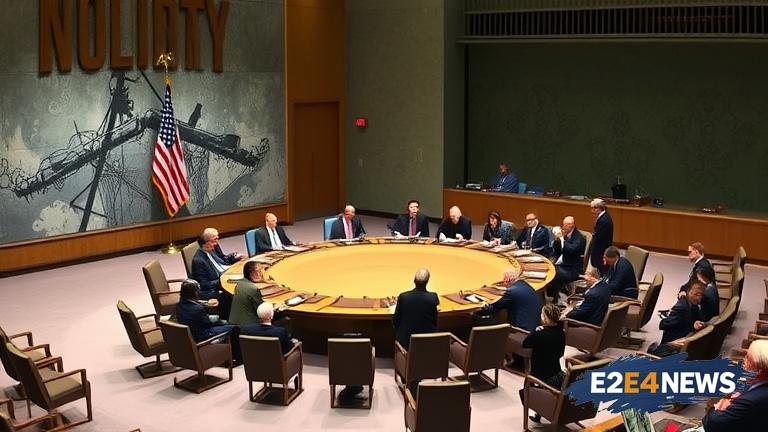The potential misuse of the UN Security Council veto by the US has become a topic of concern for Catherine Connolly, who has expressed serious worries about the implications of such actions. The UN Security Council veto is a powerful tool that allows its five permanent members, including the US, to block any decision made by the council, regardless of international support. This veto power has been a subject of controversy, with many arguing that it undermines the effectiveness of the UN in addressing global issues. Connolly’s concerns come at a time when the US has been increasingly using its veto power to block decisions that are not in its interests. The US has vetoed several resolutions in recent years, including those related to the Israeli-Palestinian conflict and climate change. This has led to criticism from other member states, who argue that the US is abusing its veto power to advance its own interests. The UN Security Council is responsible for maintaining international peace and security, and the veto power is intended to be used to prevent decisions that could lead to conflict or instability. However, the use of the veto power has become increasingly politicized, with permanent members using it to advance their own interests rather than to promote international peace and security. Connolly’s concerns are not isolated, as many other countries and organizations have also expressed worries about the potential misuse of the veto power. The European Union, for example, has called for reform of the UN Security Council to limit the use of the veto power. The African Union has also expressed concerns about the impact of the veto power on international relations. The use of the veto power has significant implications for international relations, as it can prevent the UN from taking action on important issues. This can lead to a lack of accountability and a sense of impunity among states that are able to use their veto power to block decisions. The veto power can also be used to undermine the authority of the UN, which can have serious consequences for international peace and security. In recent years, there have been several instances where the US has used its veto power to block decisions that were widely supported by the international community. For example, in 2020, the US vetoed a resolution calling for a ceasefire in the Israeli-Palestinian conflict, despite widespread international support for the measure. This has led to criticism from other member states, who argue that the US is using its veto power to advance its own interests rather than to promote international peace and security. The potential misuse of the veto power is not limited to the US, as other permanent members of the UN Security Council have also been accused of abusing their veto power. China, for example, has used its veto power to block decisions related to human rights in countries such as Myanmar and North Korea. Russia has also used its veto power to block decisions related to the conflict in Ukraine. The use of the veto power has significant implications for the effectiveness of the UN in addressing global issues. The UN is often unable to take action on important issues due to the use of the veto power, which can lead to a lack of accountability and a sense of impunity among states. This can have serious consequences for international peace and security, as it can create an environment in which states feel that they can act with impunity. The potential misuse of the veto power is a complex issue that requires a nuanced approach. While the veto power is an important tool for maintaining international peace and security, it must be used responsibly and in the interests of the international community. This requires a commitment to reforming the UN Security Council to limit the use of the veto power and to promote greater accountability and transparency. The international community must also work to promote a culture of cooperation and diplomacy, rather than relying on the veto power to advance national interests. Ultimately, the potential misuse of the veto power is a challenge that requires a collective response from the international community. By working together, we can promote a more effective and accountable UN that is able to address the complex challenges facing the world today.
